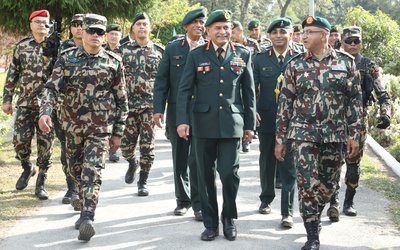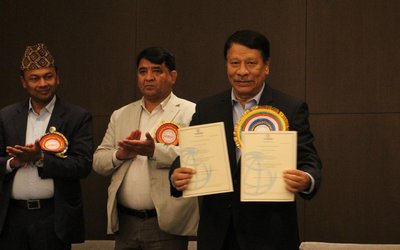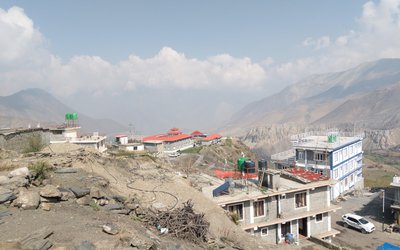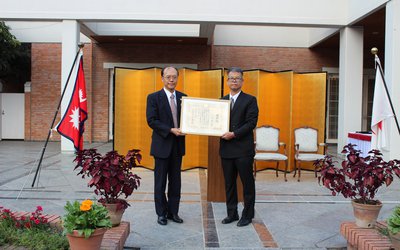The Nepali society used to be known with many peaceful, glorious words, including love, respect, bond, cohesive, harmony etc among individuals, couples, families, groups and communities until around 15-20 years back or before the emergence of the Maoist Insurgency. Now the scenario is totally reversed. This can be observed throughout the day in various means of media. For instance, a father killed his daughters by drowning them in the river, a boyfriend killed his girlfriend, an intimate friend killed friend, elder brother killed an entire family of his younger brother, a husband killed his wife and daughter, a mother dumped her twin newborn babies in dustbin etc.
Mostly, perpetrators gave economic crisis, distortion of relationship and trust and greedy eyes on existing ancestral property as the reasons. But these excuses are not enough answers, because there are other underlying factors, including psychological, social and political, associated with the incidents.
Likewise, the indigenous social safety and security-nets are also torn out badly. The festivals and cultural events are also changing. People are gradually becoming insensitive towards such religious and cultural celebrations or they are organized just for the sake of formalities. Such events have significant value to ventilate feelings in both positive and negative ways in relations and works, which helps to maintain us alive always, constructive and creative forever. In contrast, the culture is becoming worst and pro-protest oriented. The degree and intensity could vary from place to place but the scenario is the same everywhere, at home, with neighborhood and community and among class, caste, and gender at large. The dialogue, consensus, compromise are gradually disappearing in practice. For instance, a suicide case happened last week in Butwal where women's group can use several ways to correct her.
Many people interpreted it differently but it is also an example of unconscious learning from seniors, refers to social leaders, politicians etc.
Everyone can notice that another peculiar and emerging culture of violence around use of Facebook characterized by use at the fake names, anti-social words, language, pictures and links and makes unnecessary notes towards women/girls or about women/girls specially. It shows that the motivation of people is diverting to negative note or violence.
Meanwhile, the depression, severe anxiety, substance uses, suicide and psychosocial problems are increasing in Nepal.
Going through above mentioned scenario, some questions could come to mind of us all, like why and how it happens? Why the serenity of Nepali culture was torn? Who should be accountable and what would be the best way to rewind?
As said, many national and international researches show a decade of insurgency is one of leading contributing factors for creating such brutal, inhuman culture. People gradually become desensitized towards killings, violence etc and also unintentionally learned these things which are converting in to several forms of protests and crimes.
Meanwhile, the decade conflict facilitated to raise the expectations of people. People are expecting that the new republican democratic state can address poverty and establish social justice. Unfortunately, state has blocked itself, instead of restructuring and drafting new constitution.
It is also a misfortune of poor Nepali fellows that nothing changes at their life due to political transformation. For saying every policy talked about the empowerment of poor, dalit, women and marginalized groups in each line of statement. But the entire resources is only for those who have access. For instance, the dalit, poor women, are still in ‘chhaupadi’ (a cowshed practice during menstruation) with empty stomach, her kids deprived of schooling, suffering from epidemic diarrhea and so many things.
The political parties and their existing culture also enable to create such brutal culture in Nepali society. None of the political parties is accountable towards the poor, dalit, women and marginalized groups/communities as they promise to be as per their manifestoes. Now-a-days, the political parties are demonstrating like they are synonymous of violation of people's rights, policies and corruption. Neither they do anything good, nor follow the policies, nor facilitate actions against criminals and perpetrators. The major political parties and senior leaders are protecting such big criminals for several accusations e.g. rhino smugglers. Even they are silent against killing of their party cadres. Such impunity culture has been encouraging crimes, killings and anti-social activities.
Consequently, the social, family peace and harmony are being thrown into chaos, which is appreciated by western people in earlier days.
In addition, Nepali society has been learning such pro-protest culture from developmental practices. Because the most of the development activities, civil societies movement get rid of from their obstacles through their extreme level of protest such as nationwide strike, walking strike, hunger strike/campaigns naked rally etc. Nowadays, such practices are being replicated even for family affairs, schools and everywhere. Compromise, dialogue, consensus, appreciation are disappearing gradually which is an emerging threat to society as well as development of the country as a whole.
In this given scenario, the state, political parties, developmental institutions and civil society are equally accountable and responsible against such shaking trend. The organized and single voice could break this impunity and irresponsible culture. Besides these, there are several ways, such as addressing people's needs, meeting expectations, and institutional arrangements for transparency, community participation and accountability.
Towards the end of this brutality and inhumane culture, the political parties and state should demonstrate action, otherwise they must have to face more problems by themselves and the entire force won't be loyal towards political parties, developmental leaders, and civil societies and state forever. Thus, if they really want to maintain their status, they should take shift for paradigm in working approaches and modalities because people desperately wait so long for strategic and collaborative leadership. The adopted behavior can modify and adopt again in to positive notions instead of crimes and violence for peace and prosperous Nepal.
- PM Oli's Visit To China: Geopolitical Implications
- Nov 19, 2024
- NEA: Kul Man Ghising, A Cool Man
- Oct 28, 2024
- DASHAIN FESTIVAL : Festival of Unity
- Oct 04, 2024
- NEPAL-CANADA Bilateral Meeting
- Oct 04, 2024
- MIDDLE BHOTEKOSHI: Final Stage
- Sep 23, 2024
















